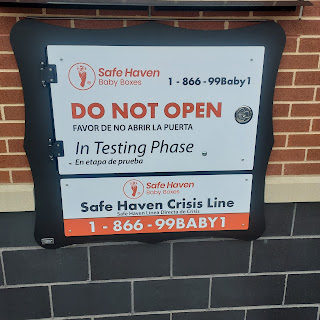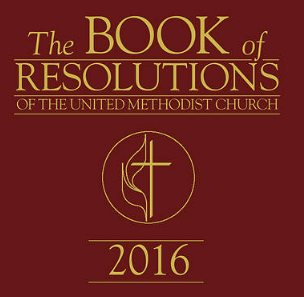I
intentionally waited until after the election to express the following opinion
on immigration. I did not want my words or ideas to be misunderstood as mere
contemporary partisan endorsement. Now that we head toward a new year of
elected officials taking their oaths (to support and defend the Constitution of
the United States), please know that regardless of who, or which party won an
election it is the right and duty of the citizen to communicate to them the
policies they think should be in place. The election of new officials is
neither an affirmation nor a surrender of ideals. It is a change of personnel. Continue to express your
policy desires to whoever is in office.
This opinion
relates to immigration. I strongly encourage that we take a Judeo-Christian
approach to those attempting to enter the United States so as to escape
disastrous circumstances in their countries of origin.
First, I shall clarify a couple of points of
Scripture…
Often on Facebook I saw a meme referring to
Deuteronomy 28:43-44
The foreigners who reside among you will rise
above you higher and higher, but you will sink lower and lower. 44 They
will lend to you, but you will not lend to them.
Oh, people do have fun taking some words from the
Bible out of proper context to support a contemporary partisan notion.
But, please note, and you can read it for yourself,
chapter 28 of Deuteronomy presents blessings for fully obeying the commands of
God (there are 613 of them), and the curses for disobedience. Verses 43 and 44
do not comprise a command, they describe curses for disobedience.
Now let me transition to a verse that is in fact a
command…
Leviticus 19: 33-34
“‘When a foreigner resides among you in your land, do not
mistreat them. 34 The foreigner residing among you must be
treated as your native-born. Love them as yourself, for you were
foreigners in Egypt. I am the Lord your
God.”
The
clarification is this…the curse mentioned in Deuteronomy 28 is the result of
not abiding by the command in Leviticus 19:33-34.
God
intends to have people where he wants them to be whether we cooperate or not.
Things go better for us when we cooperate.
From
that clarification I move on to discuss geography and economics…
I think
many people fear that with such large numbers of people entering the United
States that we will become over-burdened geographically.
I bring
to your attention this from an official Alaska website (https://alaska.gov/Kids/learn/aboutgeography.htm)...
Alaska has 365 million acres of land. Even if we
calculate land that may be uninhabitable, there is plenty of room in Alaska
alone to be home to all of the 327 million Americans in the nation. Alaska, by
itself, has enough land for each citizen of the U.S. to have at least one acre
of land, leaving the remaining area of the continental U.S. available for many
large populations.
I offer this merely as a thought exercise to describe
that there is much room for many immigrants to this country without
over-burdening our land.
Regarding economics…the more consumers we attract to
this country, the larger the economy becomes. There is plenty of room in our
economy for immigrants.
Moving on from geography and economics, I shall
address the cultural aspects of immigration, which I think reveal the true
motivations of immigration hard-liners.
I think many folk are nostalgic for a time when most
folk they met in the marketplace or at church or school were of European
ancestry and spoke English.
Many of us feel disrupted by the expressions of faith,
language, manners, and music of so many people from other countries.
This feeling of disruption causes me to be a bit
perplexed. There are so many citizens of the U.S. who visit other nations and
countries as tourists. They wish to explore the art, the music, the dance, and
the food…but just temporarily. It seems they don’t want to bring it back with
them for others to enjoy.
They seem to appreciate other cultures…"in their proper
place". Whereas these visitors to other nations and cultures feel that they
have a right to be anyplace in the world.
Having displaced the native cultures of America to
make room for European (mostly British) culture, our ancestors then started the
clock ticking on the decline of prominence of that same European culture by
forced immigration of people from Africa to serve as slaves. Those people, forcibly
displaced from Africa to north America, brought with them their religions and
cultures.
By the year 1820 there were 1,500,000 slaves in the
United States. That is a lot of generational story-telling and religious ideas
that caused African culture to spill over from the slave to the sympathetic
white listener and into the marketplace of ideas at large in America.
Multiculturalism in a democracy is inevitable.
To maintain or regain a European-centric culture in
America is much like the horse, being out of the barn, is over the river and
through the woods, without a tracking device.
I point out, from the Declaration of Independence, one
of the grievances against King George III was his obstruction of immigration…
He has endeavoured to prevent the population of these States;
for that purpose obstructing the Laws for Naturalization of Foreigners;
refusing to pass others to encourage their migrations hither, and raising the
conditions of new Appropriations of Lands.
At
the conception of this nation, immigration was valued as a national ideal.
Welcoming
the immigrant is a patriotic act.
Furthermore, to me, the matter is not one defined by
status of legal/illegal or documented/undocumented. That construct would apply
if those coming to America all had otherwise similar conditions. Rather, it is
a difference between those who are financially equipped or well-connected versus
those who are so very desperate that they will risk the dangers of the travel
from disastrous situations to be embraced by the Christian hospitality of a
Christ-inspired people.
It was Jesus that taught, not only by his example of
associating and dining with those outside of his nation, but also by the parable
of the sheep and goats in Matthew 25…
34 “Then the King will say to those on his
right, ‘Come, you who are blessed by my Father; take your inheritance, the
kingdom prepared for you since the creation of the world. 35 For I was
hungry and you gave me something to eat, I was thirsty and you gave me
something to drink, I was a stranger and you invited me in, 36 I
needed clothes and you clothed me, I was sick and you looked after
me, I was in prison and you came to visit me.’
37 “Then the righteous
will answer him, ‘Lord, when did we see you hungry and feed you, or thirsty and
give you something to drink? 38 When did we see you a stranger and invite you
in, or needing clothes and clothe you? 39 When did we
see you sick or in prison and go to visit you?’
40 “The King will reply,
‘Truly I tell you, whatever you did for one of the least of these brothers and
sisters of mine, you did for me.’
Evidence
that the United States is a Christian nation is the welcome of those in need.
If you
are a United Methodist clergy member or church member, it is good for you to
know the official position of the United Methodist Church as a denomination.
From the Book of Resolutions, which are the official positions of the church, I
bring this to you: Resolution number 3281 “Welcoming the Migrant to the U.S.”,
under A Call to Action…
• call the United States government to
immediately cease all arrests, detainment, and deportations of undocumented
immigrants, including children, solely based upon their immigration status
until a fair and comprehensive immigration reform is passed;
The reader can access this information at:
https://www.umc.org/en/content/book-of-resolutions-welcoming-the-migrant-to-the-us
For the Christian, actually
seeking to follow the example of Jesus, and to be faithful to the teachings of
the Old Testament, the default approach should be to welcome immigrants rather
than turn them away.




















